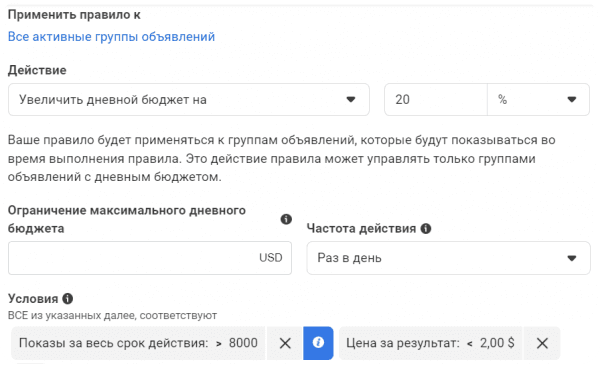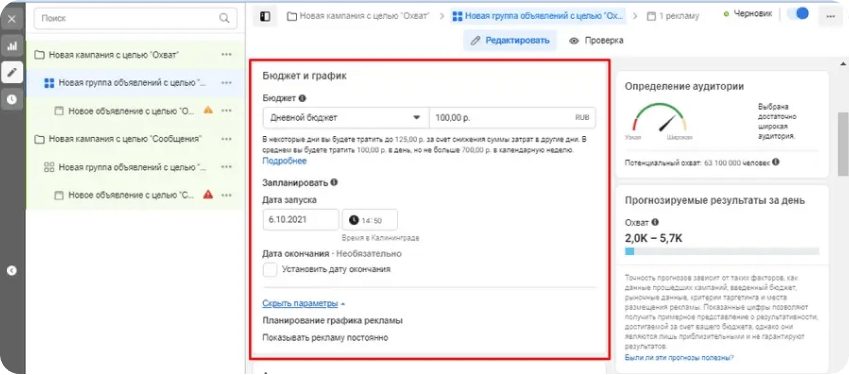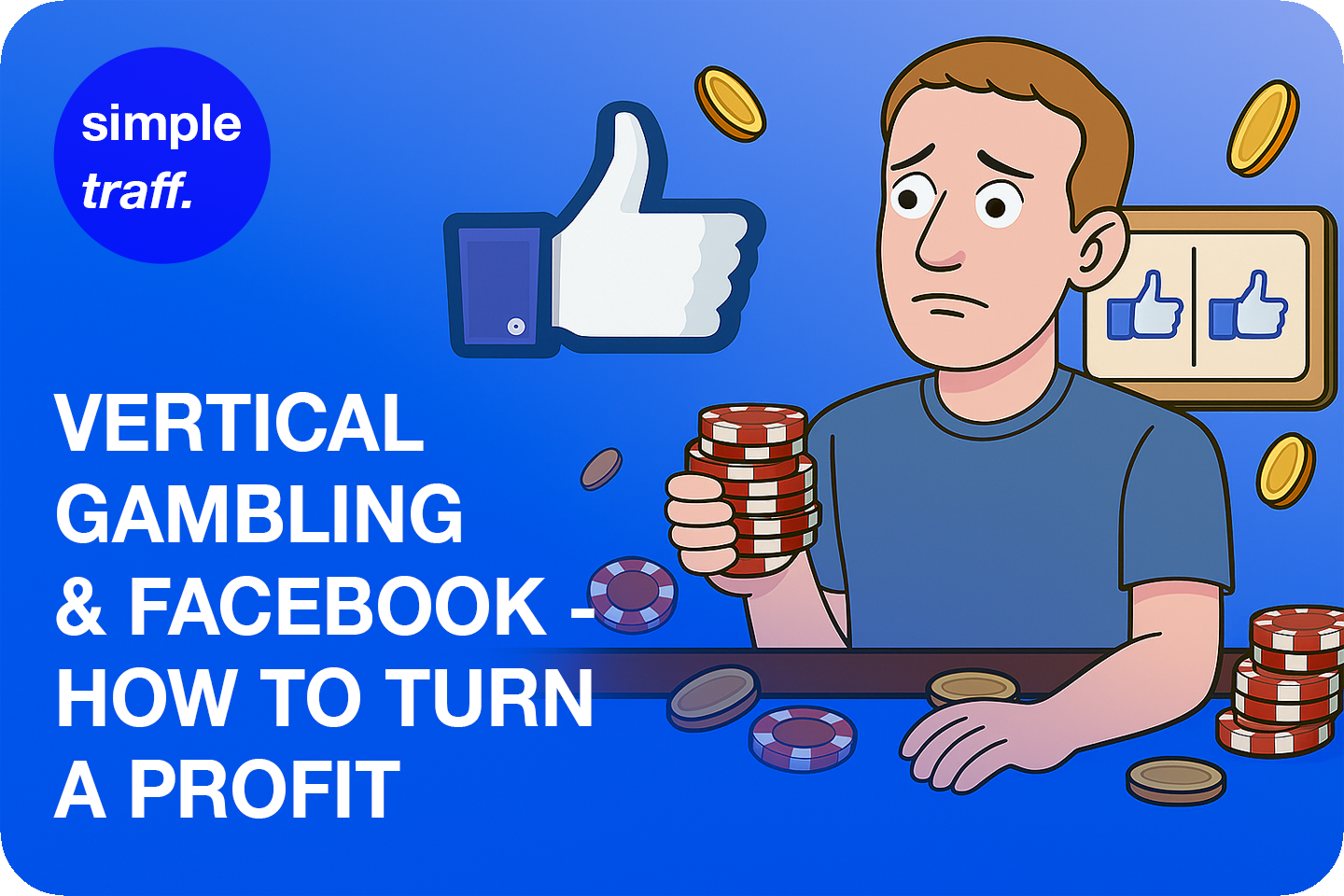How do budgets work in Facebook
Every arbitrage specialist has faced a situation when a successful bundle,
showing high ROI (more than 100%), suddenly starts working in the negative after the budget is increased.
budget increase. It seems that with the growth of investments the income should increase
proportionally, but in practice, it’s not the case. Sound familiar? Let’s find out why this
and what you can do to avoid this situation.
How do budgets work in Facebook?
Working with budgets on Facebook requires a special approach. Before you increase
budget by 200%, 500% or even more, it’s important to understand how the system works,
to avoid wasting money.

The impact of budget on Facebook algorithms
The impact of budget on Facebook’s algorithms
Facebook builds advertising campaigns based on complex algorithms that
seek to increase the platform’s revenue. This means that when you increase your budget.
the system begins to actively redirect your funds to more expensive auctions.
At the same time, the platform benefits from your earning power, as successful advertisers
tend to invest more. However, this does not prevent the algorithm when increasing the budget
from adjusting its settings and picking up new audiences, thus ruining an adset or a
campaign.
Tips for managing budgets
Before dramatically increasing your budget, it’s important to analyze your current results.
If you see that the campaign is consistently bringing in leads at a reasonable price, you can
start scaling up smoothly. Do not double or triple your budget at once – this can lead to deterioration of your budget.
budget – this can lead to deterioration of performance due to a failure in learning
algorithms.
- Analyze the test campaign: Before increasing the budget, make sure that adset
is working to your advantage and that the bundle is actually working. - Gradual increase: Start by increasing your budget by 10-20% per day. This
helps algorithms adapt without losing efficiency. - Duplicate successful adsets: If the adset shows good results,
create a duplicate with a new budget. This allows you to test how the bundle
will work with increasing costs. - Fast increase: There is a popular belief that an adset budget can be
increase by 100%+ in a day and it won’t derail optimization, but since your audience is
expands significantly, this can result in a loss of budget.
We recommend increasing your budget using auto-rules. We have already discussed in one
of the article in detail what auto-rules are and how to use them.

Another way is to raise budgets by 15% every two hours, yes this goes beyond the
beyond what we said above, but it can work in some cases. Keep track
how your campaign has changed in those two hours, if it’s doing well, keep going.
Why it’s important to be careful
Facebook may reallocate your budget in ways that are not favorable to you.
For example, the system recognizes that you’ve increased your budget and wants to allocate you a new audience.
audience. As a consequence, FB may allocate more funds to lower quality
traffic or start showing ads in placements that don’t bring in leads, which means the
which means the optimization will get messed up. This happens because the algorithms are trying to quickly
to absorb your increased budget, not always taking into account its effectiveness.
Should you use recommendations from Facebook?
Many advertisers have noticed how Facebook periodically offers to increase their ad budget, promising significant improvements in results.
campaign budget, promising a significant improvement in results. However
should you trust these recommendations? Let’s break it down.
Why are Facebook’s recommendations questionable?
These tips are created by algorithms that analyze your campaign. But it’s important
to remember that Facebook is primarily interested in increasing your ad spend.
on advertising. Recommendations don’t always take into account the actual effectiveness of your
of your ads or your long-term goals.
For example, if a campaign is performing consistently and bringing in leads at a low cost,
Facebook might suggest you double your budget. But without analysis, this can lead to
worse results – a higher budget doesn’t always mean a proportional increase in revenue.
profits.
Bigger ROI or more profit?
When you increase your budget, you will almost always notice a decrease in ROI. This is due to the fact
Facebook starts to show ads to a wider audience, including less
interested users. As a result, the cost of leads may increase.
However, despite the decrease in ROI, the total dollar revenue often increases
because of the higher volume of traffic.

Which to choose: ROI or profit?
- High ROI: Suitable for those who work with a limited budget and want to
to maximize the effectiveness of their investment. - High ROI: If your goal is to make more money, it’s important to focus on scaling, even if the ROI is a little low.
on scaling, even if the ROI drops slightly.
Before you scale your campaign, make sure you have an adequate amount of
budget. For example, if your current ROI is 100%, be prepared to
to sacrifice 20-30% of that figure to get more traffic and, as a result.
more revenue.
Budget level: campaign or adset?
You can customize your budget at the campaign or adset level. For example, if you have
a campaign with a budget of $300 and three adsets, the system will distribute the money between them,
$100 each. This is not always convenient, especially if you plan to duplicate or disable adsets.
or disable adsets. That’s why it’s recommended that you set the budget at the adset level.
gives you more control.
Conclusion
We believe that the best way to scale is through improvisation. Although one of the
of the most popular methods is to gradually increase the budget by 10-20%, we
recommend focusing on the capabilities of a particular bundle and its effectiveness.
This allows you to make more informed decisions and avoid unnecessary costs.

